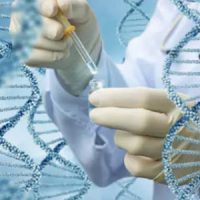Genealogy Testing Used to Solve Decades-Old Florida Cold Case

A murder case that had been going nowhere for 36 years has suddenly seen some promising developments. Michael Lapniewski, Jr. has been charged with the robbery and murder of Opal Well following he broke into her home back in 1987. While DNA was found at the scene of the crime all those years ago, a match wasn’t linked to Lapniewski until police tricked the alleged murderer into providing DNA, which they matched to DNA found in the database of a common genealogy DNA company that links family members to lost relatives. They then matched it with the DNA found at the scene of the crime. After more than three decades, there is finally a resolution to Well’s murder.
What is Genetic Genealogy?
Worldwide, millions of individuals have engaged genetic DNA testing companies as they search for unknown relatives or look for information about hereditary diseases. While most people likely didn’t anticipate that those specks of DNA would one day be used to pinpoint criminals, that’s precisely what’ the technology has empowered law enforcement to do. Here’s how it works, in brief:
- DNA evidence is left at a crime scene by a criminal perpetrator.
- Investigators check the crime scene DNA against FBI and other databases, and if a match cannot be made, they take a chance on genealogy websites.
- A profile for a genealogy website is fabricated using the DNA they’ve recovered from a crime scene, hoping a match will come up.
- If a match or near-match is revealed, detectives follow up—often contacting family members who’ve never used the websites but are in the family tree of the DNA.
- Investigators may have multiple DNA ties by now, and begin to follow the tracks in hopes that one of them will lead to a suspect.
Is That Ethical?
No one argues that it’s a good thing for someone like Lapniewski, Jr. to finally pay for his crime. Nevertheless, people who’ve considered – or already participated in genetic DNA testing may be somewhat troubled by the news that law enforcement has the ability to access the most minute pieces of their DNA in order to search for criminals. Some analysts believe there are real privacy issues here. Do people appreciate the fact that their DNA may be subject to scientific analysis by various legal entities after they use a genetic genealogy DNA service? Assuming it’s in the company’s fine print, does anyone read that stuff and grasp the potential consequences? Whatever happened to privacy, anyway?
DNA Questions in General
Beyond the question of the ethics of using genealogy testing by police, there are real issues related to DNA testing in general. The misapplication and/or overinterpretation of this kind of evidence is a tangible hazard as prosecutors pursue would-be criminals. We know just because DNA was located at a crime scene it doesn’t mean that the person was actually there while the crime was committed, and it certainly does not prove guilt. It could simply mean the defendant was present prior to the crime, or afterward. Outside of those possibilities, the issue of DNA evidence being compromised due to improper collection or storage is a whole other can of worms.
Your Legal Advocate
At The Law Office of Julia Kefalinos our Miami criminal defense attorneys will assertively pursue the best outcomes for our clients, even if it means challenging evidence in which a prosecutor deeply believes. To discuss your situation, schedule a confidential consultation in our Miami office today.

